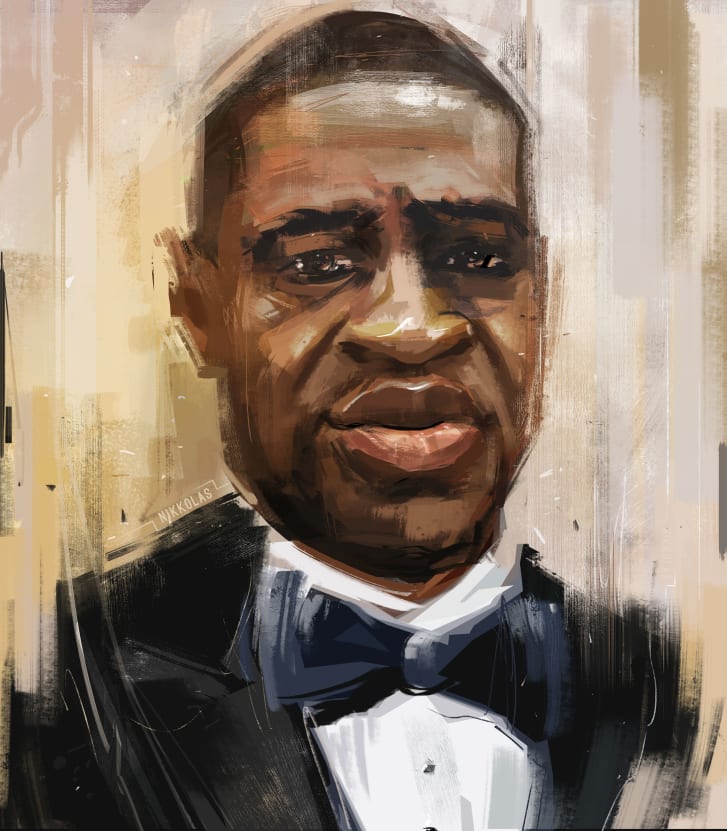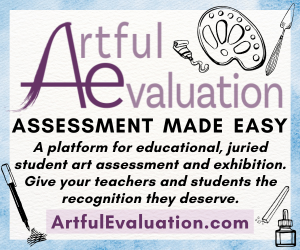Advocacy Resources
FAEA Arts Advocacy Postcard Campaign
Our Legislative Platform
The Center for Fine Arts Education Legislative Platform was developed in collaboration with the Florida Music Education Association, Florida School Music Association, and Florida Art Education Association.
The 2026 platform includes the following focus areas:
- Fine Arts Academic Achievement & Alignment
- Acceleration Points for Students who earn the Seal of Fine Arts
- Education Funding
- Supporting legislation to address Schools of Hope funding irregularities
- Teacher Recruitment & Retention
- Education Accountability
- Support legislation to ensure educational accountability (assessing student achievement) for all education entities receiving public funds
For details, please see our Legislative Platform Handout.
Write to Your Legislators!
If you're attending the 2025 FAEA Conference, make sure to stop by the Artful Happenings sessions led by the Advocacy Committee co-chairs, Natalie Potacco & Laura Hobby, to create your own postcard.
Artful Happenings: Art Advocacy Postcard Designing Sessions:
- Thursday, October 16, 12:30 - 1:20 PM (Skyway & Pier Room, Hilton)
- Friday, October 17, 10:30 - 11:20 AM (Baywalk Room, Hilton)
Find Your FL State Senator
Find Your FL State House Representative
Postcard Instructions:
- Find your legislator's mailing address by clicking the buttons above.
- Copy their address on the lines provided on the right-hand side.
- Write your address in the top left corner.
- Fill out your message on the left-hand side (Need some ideas? Check out these prompts!)
- Get creative! Add your own artwork and designs on the back of the postcard.
- Submit your completed postcard to Natalie Potacco or Laura Hobby, and FAEA will mail it out for you!

Advocacy Resources
As part of our mission and strategic plan, FAEA provides advocacy resources and opportunities for members and the general public to advocate at the national, state, and local levels for high-quality art education in all Florida schools. Together, we can raise awareness of the value of visual arts education in our schools.
2025 Florida Legislative Summary
The 2025 Legislative Session delivered significant progress for arts education in Florida, particularly in music and fine arts, due to sustained advocacy by the Center for Fine Arts Education, Florida Music Education Association (FMEA), the Florida Art Education Association (FAEA), and the Florida School Music Association (FSMA). Please see this comprehensive report for details.
Seal of Fine Arts - AICE courses:
- AICE classes in dance, music, theater or visual arts, will now count to fulfill the course requirement for the Florida Seal of Fine Arts
See the Bill Text Here - Page 42 lines 1029 – 1039
Youth Art Month - Share Your Story!
FAEA wants to hear from YOU! Record a quick video of yourself answering the prompt "Why is art important?" and FAEA will compile the responses into an advocacy video montage to share during Youth Art Month and at Conference. Send your recordings to info@faea.org or upload the file to FAEA's Google Shared Folder.
Video Requirements:
- No more than 30 seconds
- No student faces or student names
- Preferred video size is 1080x1920 px (portrait) or an aspect ratio of 9:16
Seal of Fine Arts
The Florida Seal of Fine Arts recognizes the importance and rigor of quality arts education by awarding a graduation seal for high-achieving art students. The purpose of the Seal of Fine Arts is to encourage students to develop an exemplary level of proficiency in the performing or visual arts.
For further information about how to earn the Seal see the DOE Fine Arts Page.
Seal of Fine Arts Guide for Visual Arts (updated Oct. 2024)
Questions about the Seal of Fine Arts? Ask them here!
Seal of Fine Arts Juried Event Requirement
FAEA's Florida Student Art Assessment (previously known as the K-12 Student Art Assessment & Virtual Exhibition) qualifies as a statewide juried event, which is one of the options listed as a requirement for a student to be eligible to receive the Florida Seal of Fine Arts. Click here to learn more about the Florida Student Art Assessment.
Resources:
Fine-Arts-Related Instruction's Influence on Academic Success: A Cohort Study
Arts Advocacy Brochures to print and hand out at events
- Advocacy Brochure (tri-fold)
- Advocacy Brochure (full page)
Legislation FAQs
Q: I'm really uncomfortable about the issues and don't feel as if I could respond to questions if asked to make a phone call to a legislator's office. Is a phone call really the most effective tool?
A: During the legislative session, any phone calls will be answered by an aide who will only be interested in knowing the bill number and your position. If an office is receiving a large number of calls, phones may be set to go to voice-mail. This does appear, however, to be the way of work that gets a legislator's attention the quickest.
Q: I wish that Legislative Action Requests could come with more time available to respond. How could that be better?
A: Our efforts are at the whim of the legislature and their rules. Typically, committees only have to publish their agenda 2-3 days in advance. A Tuesday meeting might only have its notice posted on Friday afternoon. In the last half of the session, the time to publish agendas becomes even shorter.
Q: Is it possible to provide information about issues further in advance?
A: Our office works to do that, however, even with the best lobbying efforts some issues come up after the session has begun. There is also a continual problem of providing so much information that none of it is read. Everyone is on "information overload" so much that we tend not to read completely or to remember. The bottom line is that we can provide the information, but it needs to be read.
Q: What about email to a legislator? How effective is it?
A: It's harder to gauge. We have discovered that email provided through the "CapWiz" program comes in through a different source than regular email to a legislator. They can identify it as being part of a mass effort and they do tend to discount it. Additionally, email from someone who is not the constituent of a legislator is pretty much ignored and is NOT appreciated.
Q: How can we be more effective in providing assistance to FAEA's government relations efforts?
A: "All politics are local." Forming a relationship with a legislator or a legislative aide to acquaint them with our issues is very helpful and often determines success. Your local efforts mean a great deal.
Q: I'm really uncomfortable about going to see my legislator. Is that really necessary?
A: You are the legislator's employer! They work for you!
While it may be uncomfortable the first time, going with a couple of like-minded friends to educate the legislator about the importance of arts education in his/her district is REALLY important. If we don't take that step – how can we expect them to be concerned about our issue?
Q: When is the best time to make an appointment to see my legislator?
A: Any time except the legislative session. Planning and bill-writing often begin in the fall before legislative committees start meeting.
Q: Who should go to a legislative appointment?
A: It's usually best to go with no fewer than 2 and no more than 4 people. If you are the art educator, make certain a parent or community supporter attends (perhaps, a booster officer or a successful program alumnus). It's best to attend for a specific purpose and make a specific request.
Q: What will be next topic be that is of concern for arts educators with legislators?
A: There are three identified – but these may change (see the main legislative webpage):
- The need to have a middle school fine arts course requirement
- Including the fine arts in any revision of the World Class or Sunshine State Standards
- Mandates that add requirements to the school day without adding minutes or funding – as the last effort for daily PE or required Financial Literacy classes – which hurt students' access to other areas of the curriculum.
Q: How can I become more familiar with the issues facing arts education?
A: As issues evolve at the legislative level, there will be "talking points" posted on this site. If you have an issue that may be local and you would like to see how it fits into the state advocacy efforts, either email or call the Tallahassee office (info@faea.org). Any member of the FAEA Executive Committee is also well-versed in state-wide issues and can either answer a question or direct to more information.
Q: How likely is it for a legislator to accept an invitation to my art show?
A: It may not be very likely the first time an invitation is sent, but persistence yields results! Legislators like to attend events where there are lots of people, and where they can have a public role (and be seen). You may wish to solicit assistance from them in honoring a special student or family within your art program.
Q: Is there a down-side in inviting a legislator to my school and program?
A: You certainly want to be sure that it is a positive event which is high in artistic quality, well-organized, and has good attendance. If any of those elements are lacking, the message about arts education might be lessened.
If an invitation is accepted, it will be important to make certain that your campus administrators know the legislator will be attending. Be certain to keep them in the loop.
So You've Decided To Meet With Your Legislator!
Q: I’m not very comfortable with this step, but I want to know more. Where do I start?
A: The first step is to recognize that legislators are just people and have no way to know everything about everything. If we want them to know more about arts education, the only way that can happen is for us to provide them information. Additionally, they tend to care about the issues their constituents care about – so the more often they hear about an issue, the higher it tends to be in importance to them.
Q: Who should participate in a face-to-face meeting with a legislator?
A: The meeting should include 2-4 people. You never want to do such a meeting by yourself – and more than 4 people are too many. Usually it is best to have a arts educator, and a parent or booster person. If you have someone in your community who already has a personal relationship with the legislator, having that person along will be very helpful.
Q: How do I actually make the appointment?
A: Call the local legislative office to inquire. The scheduler will want to know what the topic will be (art or fine arts education) and who will be attending. If you’re not certain when you make the appointment, provide the names of people you’re sure of, and then call them back with the others.
Q: Will I actually be meeting with the legislator?
A: If the appointment is well away from the legislative session and held in the local district office, it should be with the legislator. If there is an unexpected event, or you are scheduling a time during a committee week, you may be meeting with a legislative aide.
Q: How effective is meeting with an aide?
A: The aides are generally very influential and tend to have specific assignments (such as "education"). While it may be disappointing to meet with an aide, at first, they are in a position to raise your issues to a level of importance.
Q: How do I prepare for the meeting?
A: Have a conversation with the people planning to attend and use the current talking points from the FAEA legislative page. You may also want to talk with FAEA Staff (info@faea.org) as part of your preparation. He will want to know about your meeting and will be happy to talk with you. Decide in advance who will cover what points, so that everyone gets to talk. Additionally, make sure that everyone knows the only topic to be covered in the meeting is art education - don’t allow yourselves to get off on some other topic!
Q: What will be the first question?
A: In nearly every meeting, the legislator will begin by asking, "What can I do for you?" The answer to that question needs to be succinct and establish your credibility. These opening comments are the most important of the meeting – think them out carefully. This is an area that you may want to discuss with FAEA Staff as part of your preparation.
Q: Is there anything else I should think about?
A: Be sure the time you’ve scheduled for the appointment is your "own" time. It’s not appropriate or ethical to see a legislator on paid school time.
Keep the focus on your conversation on students and student opportunities. Arts education is about students and student success!

Black Lives Matter
FAEA stands in solidarity with those protesting police brutality, systematic racism, and every life lost to racism.
Portrait of George Floyd by Nikkolas Smith, from The People Creating Art to Remember George Floyd




